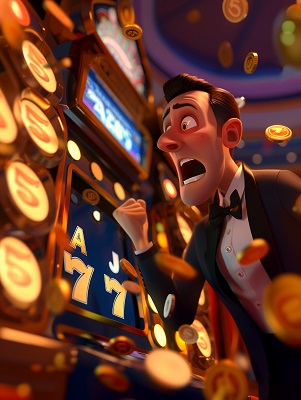
In the realm of slot games, players encounter various payout structures that dictate how rewards are distributed during gameplay. These structures can greatly influence the frequency and size of potential wins, shaping the overall gaming experience. Understanding these payout systems is crucial for making informed decisions about where to allocate resources. In the realm of slot games, players encounter various payout structures that dictate how rewards are distributed during gameplay. These structures can greatly influence the frequency and size of potential wins, shaping the overall gaming experience. Ramly888 Asia Understanding these payout systems is crucial for making informed decisions about where to allocate resources.
By delving into the intricacies of slot game payout structures, players can enhance their chances of achieving favorable outcomes.
Understanding Slot Game RTP
Understanding Slot Game RTP is essential for players seeking to strategize their gameplay effectively. RTP, an acronym for Return to Player, signifies the proportion of total wagers that a slot machine will return to players over an extended period.
For instance, a slot game with an RTP of 95% implies that, on average, for every $100 wagered, players can expect $95 in winnings. Being aware of a slot game’s RTP enables players to make informed choices regarding which games to engage with, as higher RTP percentages generally indicate more favorable winning odds.
Opting for games with higher RTP values can enhance the likelihood of accruing greater winnings in the long term.
Types of Slot Game Payouts
When engaging in slot games, it’s essential to understand the different payout structures that can significantly influence your gaming experience. Two common types of slot game payouts are fixed payouts and progressive payouts.
Fixed payouts involve predetermined amounts for specific combinations, providing consistent wins but typically smaller jackpots. On the other hand, progressive payouts increase as more players wager on the game, offering the potential for substantial wins but are more challenging to achieve.
Some slots combine both fixed rewards and progressive jackpots, allowing players to enjoy a mix of consistent payouts and the opportunity for larger wins. By comprehending these payout mechanisms, players can make informed choices that suit their preferences and objectives.
Factors Affecting Payout Structures
Understanding slot game payout structures involves considering several key factors that influence how winnings are determined. One such factor is the game’s volatility, which dictates the frequency and size of potential wins. High volatility slots offer infrequent but substantial payouts, while low volatility slots offer smaller wins more frequently.
The return to player (RTP) percentage is another crucial element that impacts payouts, with games featuring a higher RTP returning more to players over time.
The number of paylines and bet size also play a significant role in determining payouts, as more paylines and higher bets typically result in larger wins. By taking these factors into account, players can make more informed decisions when playing slot games.
Strategies for Maximizing Winnings
To enhance your chances of winning in slot games, employing strategic approaches is essential. Begin by establishing a budget and adhering to it strictly to effectively manage your bankroll.
Opt for slot games with higher RTP (Return to Player) percentages as they offer improved winning odds over time. Take advantage of bonuses and promotions provided by online casinos to prolong your gameplay without increasing your personal risk.
It’s advisable to vary your bet sizes to strike a balance between pursuing smaller, more frequent wins and aiming for larger payouts.
Lastly, practice responsible gambling habits by recognizing when to stop playing, regardless of whether you’re experiencing a winning or losing streak.
Progressive Jackpots Explained
Progressive jackpots in slot games refer to the prize pool that increases with each bet placed on the game without a winner. A small portion of every wager contributes to the jackpot, leading to significant prize amounts over time. The jackpot continues to grow until a player achieves the required winning combination and claims the accumulated sum.
Progressive jackpots can be standalone, local, or networked. Standalone jackpots are exclusive to a single game, while local jackpots are linked to a selection of games within a specific casino. Networked jackpots combine contributions from multiple casinos, resulting in even larger jackpot totals.
Keeping an eye on progressive jackpot opportunities can enhance your chances of winning substantial rewards.
Conclusion
Now that you understand slot game payout structures, you can make more informed decisions on which games to play based on your preferences. Whether you enjoy consistent wins or prefer the thrill of chasing a progressive jackpot, knowing how the payouts work will help you maximize your winnings. Remember to always play responsibly and have fun while spinning the reels!